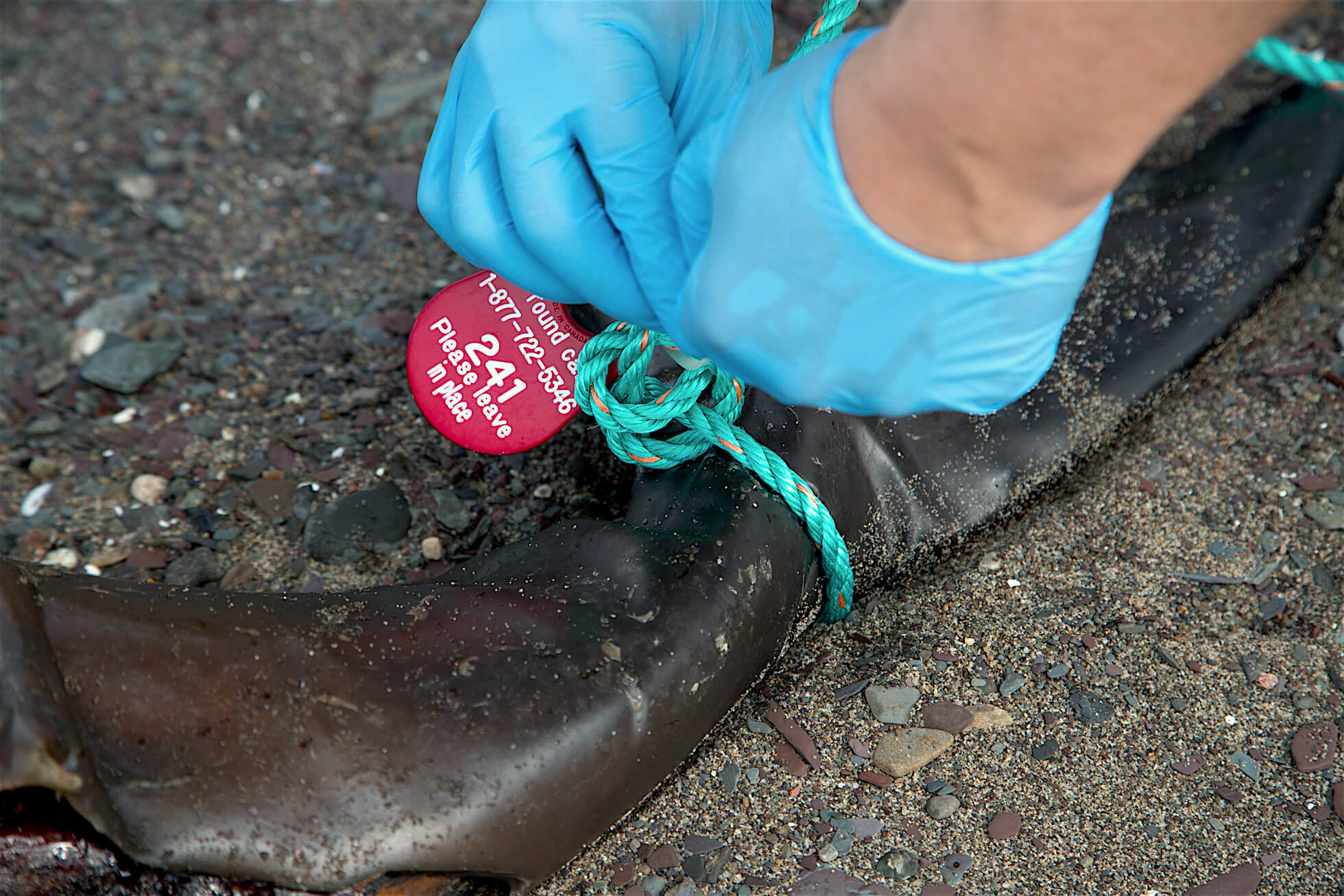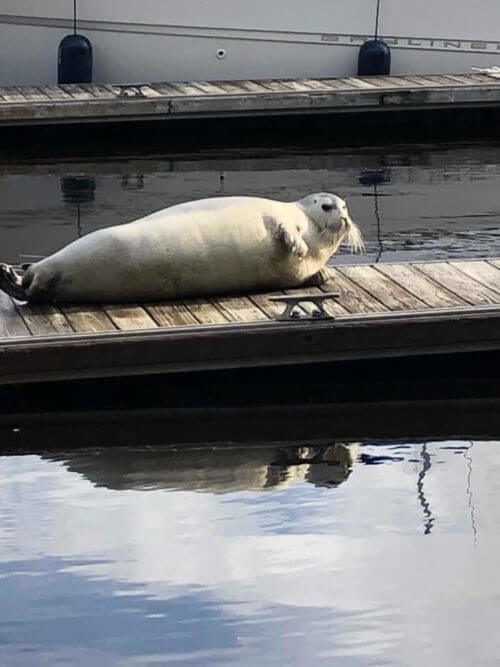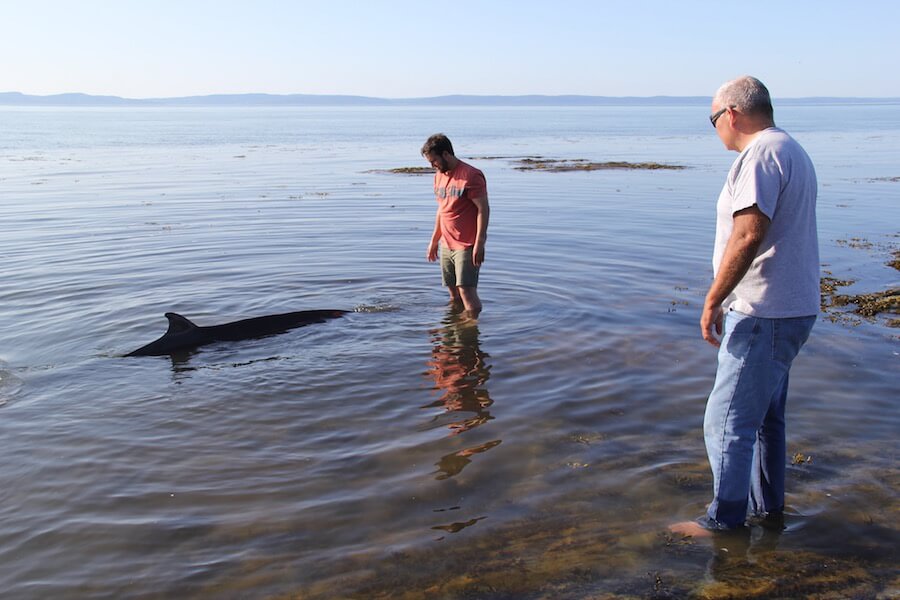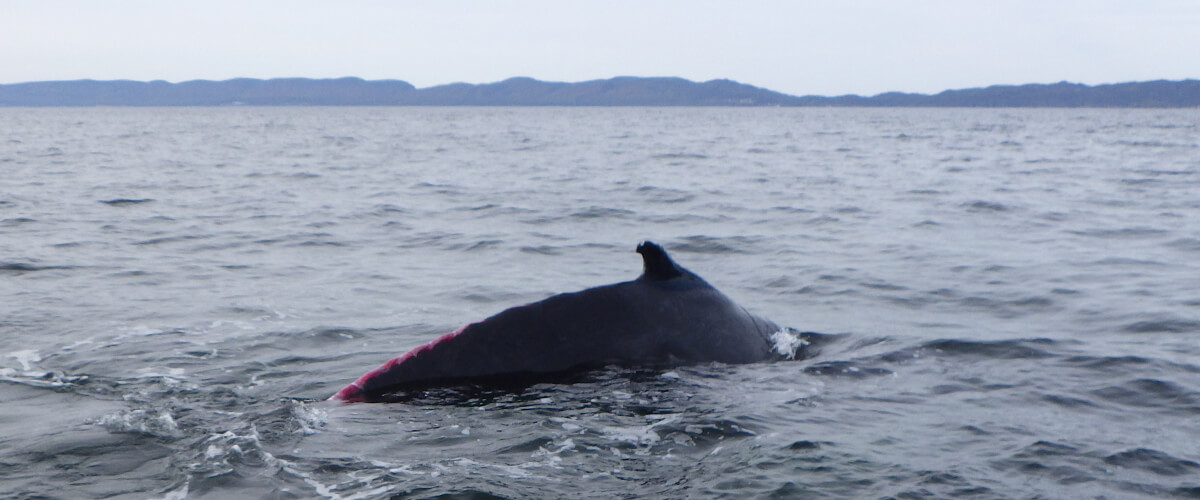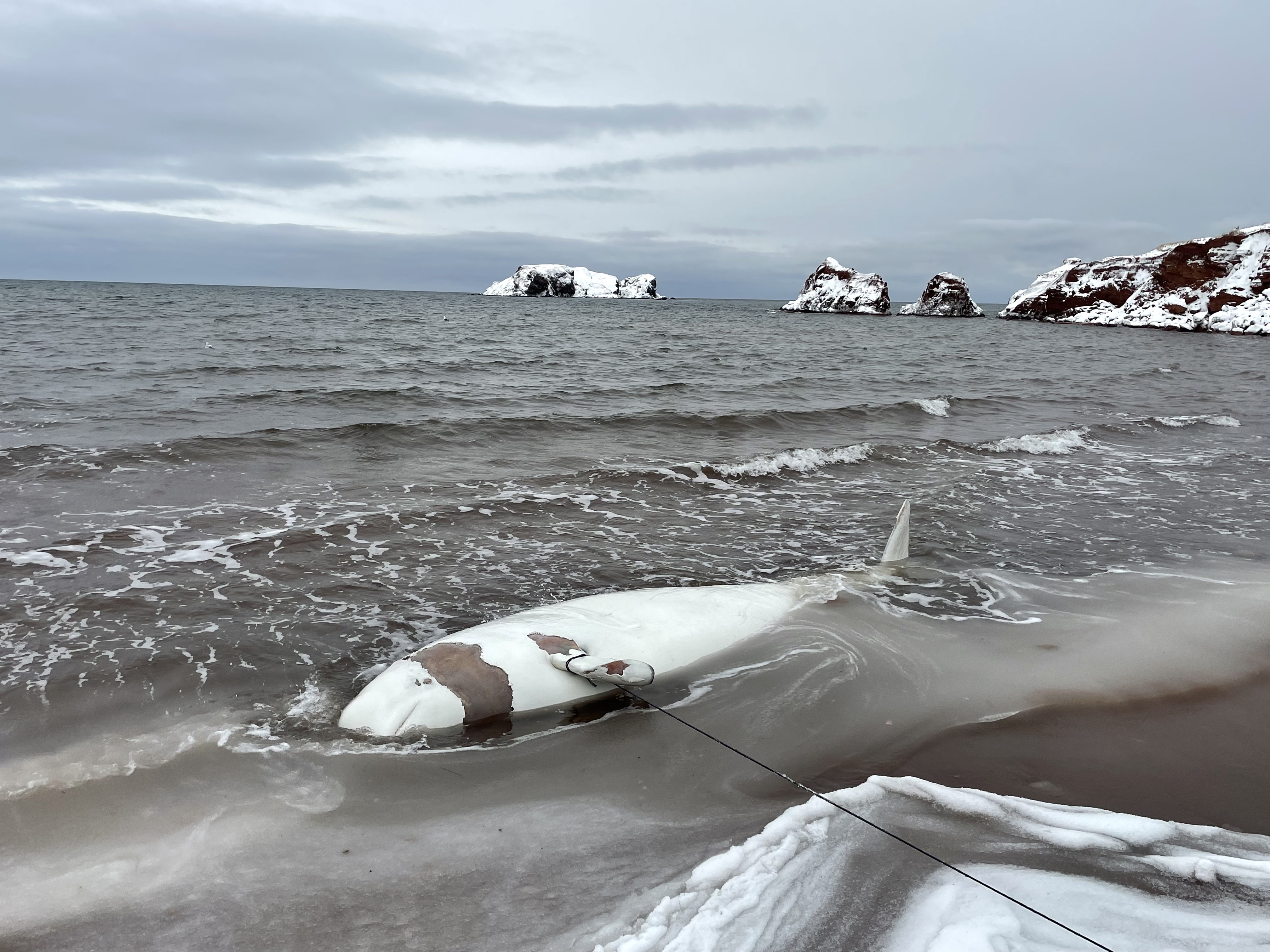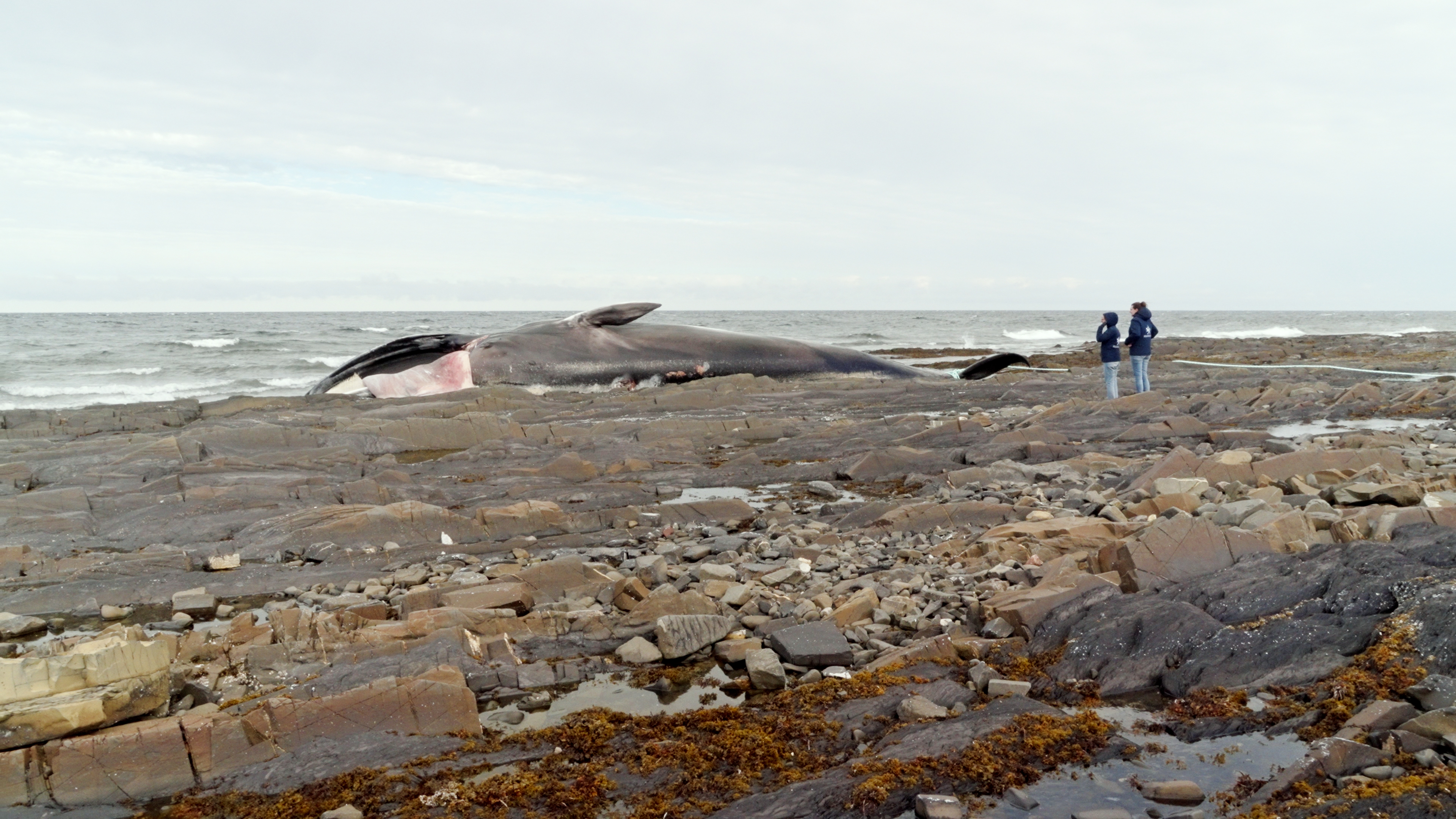The summer 2019 season has drawn to a close. It’s time for the Quebec Marine Mammal Emergency Response Network (QMMERN) to look back on the past season while at the same time preparing for the winter that lies ahead.
Since January 1, 2019, the Marine Mammal Emergencies call centre has received 654 calls that translated into 274 cases for dead or vulnerable whales or seals. The difference between the number of calls and the number of cases lies in the fact that there may be several calls for a single case. Additionally, a call does not necessarily result in a case, for example when someone calls in to report a bird.
But what exactly constitutes a “case” for the Network? A case is any situation where we are informed that a marine mammal is dead, in difficulty or in immediate danger due to its physical condition, its geographical location or human behaviour.
Documenting all these cases and collecting the associated scientific data would not have been possible without the invaluable assistance of the witnesses who contacted us and the volunteers who helped us on the ground throughout the year. We thank them for their cooperation and motivation!
A short selection of cases handled this summer:
The long-finned pilot whale is an uncommon species in the fluvial portion of the St. Lawrence. This species tends to remain farther offshore, for example in the Gulf. But individuals are occasionally found along Quebec’s shorelines, as was the case on May 29 in Gaspé. Samples were taken from the carcass, which will shed a little more light on this individual.
Between July 23 and August 4, a bearded seal moved between Trois-Rivières and Verchères. While it is not uncommon to observe seals as far upriver as Montreal, it is more surprising in the case of the bearded seal, which is an Arctic species. The pinniped appeared to be in good physical condition, moving and eating normally.
On August 25, a Sowerby’s beaked whale was found stranded alive on the shores of Île Verte. This little-known species ultimately returned to the open sea. A truly extraordinary case!
Like the St. Lawrence beluga, the North Atlantic right whale is an endangered species. This summer once again, eight carcasses were found in Canadian waters and a ninth animal was found in US waters. Six carcasses were reported to Marine Mammal Emergencies, as were two individuals that were found entangled in fishing gear. The most recent entangled whale to be reported alive in St. Lawrence waters was eventually found dead in the US. This individual was better known as Snake Eyes.
On September 7, a blue whale carcass was observed adrift. This species is also endangered. It is often difficult to sample or conduct necropsies on these animals because they have a greater tendency to sink when they die at sea. It is therefore not so easy to get an accurate picture of the mortality rate in the St. Lawrence. This year, just one carcass was reported in Quebec.
The season ended on a positive note: a humpback whale was successfully untangled off the coast of Gaspé on September 21. Fishery officers in the area managed to free the whale from its ropes.
Still active despite the snow!
The vast majority of cases occur between May and October, months when the presence of marine mammals in the St. Lawrence is at its peak. This is also the period when residents are most likely to be walking the shoreline or out on the water. Nevertheless, the Quebec Marine Mammal Emergency Response Network remains on alert even in the depths of winter. Every year, between November and April, we receive about 80 calls and handle approximately 40 cases.
Have you spotted a seal or whale carcass or a live, vulnerable animal? Dial 1-877-7baleine (1-877-722-5346) without delay.


